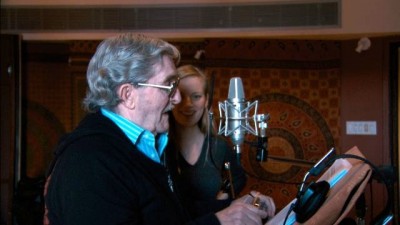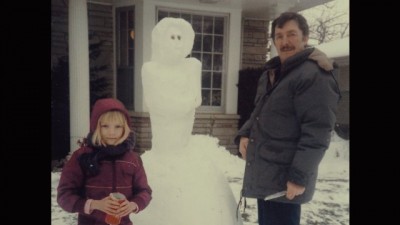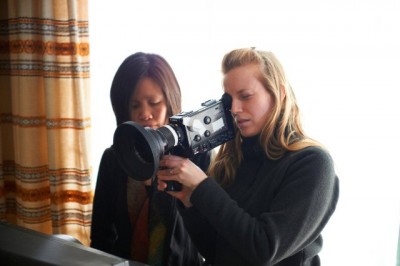
Sarah Polley has yet to make a film that I flat-out loved, but she’s at least made movies that contain elements I’ve admired. Her new film, Stories We Tell, is no exception, though I like it less than her first two features, Away from Her (2006) and Take This Waltz (2011). That may partly reflect my own bias against documentaries, but it also reflects my feeling that the film’s final stretch is too long. It almost feels like Polley thinks that if she keeps pressing, the film will reach some blinding revelation — and that just doesn’t happen. In fact, she keeps going with such misguided tenacity that her family becomes more like victims than relatives. But for all that, Polley has crafted an involving, strikingly human film that plays fast and loose with the documentary form. Rather than settle for talking heads, home movies and archive footage, Polley has created ersatz “archival” material to — fairly seamlessly — flesh things out. In most cases, I was hard-pressed to tell where reality left off and reconstruction began. That might wring the withers of traditionalists, but it makes for involving filmmaking.

What Polley gives us is a film that starts out to be a portrait of her late mother, Diane, as pieced together from the memories of her family. In itself, this offers an interesting look — cobbled together from people who remember Diane more clearly than Sarah Polley (she was 11 when her mother died). It also shows a notable level of self-awareness from Sarah’s father, Michael, who notes early on that Diane didn’t so much fall in love with him as she fell in love with the character he was playing on the stage. The reality of Michael turned out to be more introverted and unexciting than that character. However, he is clearly the star of this film — not only serving as interview subject, but as narrator. It helps that he’s an engaging, casually outrageous character. This is a man on whose dining room table we see no less than three COPD inhalers — and an open pack of cigarettes. (Yes, I admit I can identify with him.)

This composite portrait of Diane is soon complicated by the growing suspicion that a family joke about Michael not really being Sarah’s father might not be a joke. But if he’s not, who is? And so the film becomes a kind of detective story to uncover who her biological father may be. The answer to that question is not quite as easily answered as it might seem. Even once it’s solved, it isn’t simple. For that matter, even a positive answer raises as many questions as it answers. Polley has warned us at the onset that this is a story that can never be answered, and while it is in a sense, the ramifications of it all never can be really answered. But that’s kind of the point — the collision of reality with a story that’s long been told. And it’s a collision that’s worth watching. In the end, of course, everyone involved is left with his or her assessment of the truth — usually, the one that offers the most personal comfort. It may seem more important to the filmmaker than it is to us — how could it not be? — but you’ll likely come away feeling your time was well spent. Rated PG-13 for thematic elements involving sexuality, brief strong language and smoking.
Playing at Carolina Cinemas




That might wring the withers of traditionalists
That’s the best half-sentence I’ve read all week.
One day perhaps I will construct a whole sentence to your liking.
I just watched the Imposter last night, it was really good.
And that relates to this how?
One day perhaps I will construct a whole sentence to your liking.
Everybody needs a life goal.
Its also a documentary film.
Yes, well…
This exits the premises by Friday.